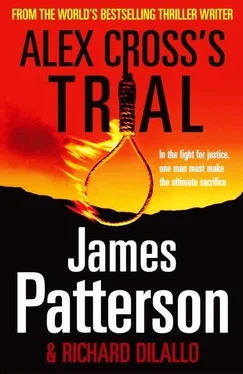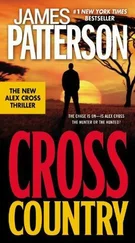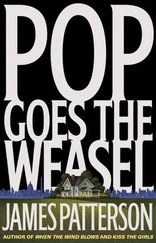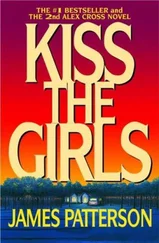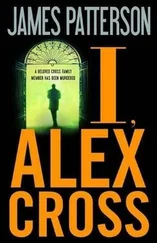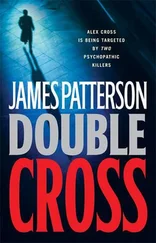At the other end of the platform were two large and burly men I recognized as the Purneau brothers, Jocko and Leander, an unpleasant pair of backwoods louts who had been running the cotton gin for Old Man Furnish as long as I could remember. The two of them towered over three scrawny black boys who looked to be fifteen years old, maybe even younger.
“Well, suh, we just thinking with the crop coming you might be needin’ some mo’ help round the gin,” said one of the boys.
“That’s the trouble with you niggers, is when you set in to tryin’ to think,” said Leander Purneau. He spoke in a friendly, jokey voice, which put me, and the boy, off guard. But then he popped him a solid punch on the side of his face and sent the boy down onto his knees.
The other boys skittered away like bugs from a kicked-over log. Suddenly I really was back in the past, and the boy on the ground was in serious trouble, like poor George Pearson had been.
There was one difference now – I was not a timid little boy. I was a grown man. As I wiped my wet hands on my shirt, I considered what I was about to do.
If I caused a commotion, made a scene, called attention to myself, I might endanger my mission even before it started.
But if I did nothing?
Fortunately, the boy on the ground rolled over and jumped up. He sprinted off down the platform, holding his jaw, but at least he was getting away.
And at that very moment, I felt something cold and hard jammed against the side of my neck.
It felt an awful lot like the barrel of a gun.
A deep voice behind me: “Just put your hands in the air. Nice and slow, high, that’s the way to do it.”
“NOW, I WANT you to turn around real slow, partner. Don’t make any fast moves.”
I did exactly as I was told. Real slow.
And found myself looking straight into the face of Jacob Gill. Jacob and I had been inseparable from as far back as I could remember, until the day I left Eudora for college.
“You son of a bitch!” I shouted at him.
Jacob was laughing so hard he actually held his stomach and doubled over. His laughter made him do a little jig of delight.
“You nearly gave me a goddamn heart attack,” I said. “You’re a jackass.”
“I know,” Jacob said, howling some more.
Then we hugged, seizing each other by the shoulders, stepping back to get a good look.
“How’d you even know it was me?” I asked.
“We don’t have too many yellow-haired fellows ten feet tall hanging around,” said Jacob. Then he added, “I saw you decide not to mix it up with Jocko and Leander. That was smart thinking on your part.”
“I guess so,” I said. I remembered the time Jacob left me in the swamp to watch what happened to George Pearson. I wished I could tell him why I’d held back this time.
“Hey, it’s near dinnertime,” Jacob said and lightly punched my shoulder. “Let’s go get some catfish.”
“That sounds good. Where we going?”
“Don’t tell me you’ve turned into such a big-city boy you forgot Friday is catfish day at the Slide Inn?”
I PUSHED THE BICYCLE between us down Myrtle Street, toward the town square. Jacob stopped twice along the way to take a nip of whiskey from a pint he kept in his worn leather toolbox, and I said hello to a couple more people I recognized, or who remembered me.
The Slide Inn was alive with the hum of conversation, the smell of frying fish, the smoke from the cigars of the old fellows who always occupied the front table, solving the world’s problems on a daily basis.
“Why aren’t you staying at your daddy’s?” Jacob asked as soon as we sat down at a corner table.
“You know my father,” I said. “It seemed like Maybelle’s was the smart place to be. My father and I just don’t get along.”
“All right, then. But there is one question I been dying to ask: What in hell are you doing back in Eudora? ”
“Nothing much,” I said. “I’ve got a little business to tend to.”
“Lawyer business?”
“Just a simple job for the Justice Department. I have to interview a few lawyers in the county, that’s all it is. In the meantime – it’s catfish!” I said.
Pretty soon Miss Fanny came from behind the counter bearing plates of crispy fried fish, sizzling-hot hush puppies, and ice-cold sweet-pickle coleslaw. The first bite was delicious, and every bite after. I asked Miss Fanny what time the place opened for breakfast, and made up my mind never to suffer through another of Maybelle’s breakfasts.
“Hell, I look old, but you still look like a high-school boy, Ben,” said Jacob. “Like you could run ten miles and never even break a sweat.”
“Oh, I did plenty of sweating just riding that bike a dozen blocks,” I said. “It’ll take me a while to get used to this heat again. How you been keeping yourself, Jacob?”
“Well, let me see… you probably heard I turned down the offer to be ambassador to England… and that was right after I passed on the chance to be president of the university up in Tuscaloosa. Well, sir, it was shortly after that I made up my mind that the profession I was most suited for was as a carpenter’s assistant.”
“That’s good,” I said. “Honest work.”
“Yeah, me and Wylie Davis are the men you want to see if you need a new frame for your window screens, you know, or a new roof for your johnny house.”
Then there was silence, a good and acceptable kind of silence – nothing nervous or uncomfortable about it. The kind of quiet that is tolerable only between old friends.
It was Jacob who finally broke it.
“They were good days, Ben. Weren’t they?”
“They were great days.”
“We were friends! Right through it all.”
“The best,” I said. “We were like brothers.”
We clinked our iced-tea glasses. Then Jacob spoke.
“But there is one thing I need to make very clear to you, Ben.”
“What’s that?” I tried to keep the note of concern out of my voice.
“You said we were like brothers?”
“Yeah? That’s what I said.”
“I just need to remind you of something.”
“Well, go ahead, Jacob,” I said.
“I was always the pretty one.”
ENOUGH!
Enough idle thoughts about my long-ago romance with Elizabeth Begley.
Enough turning over in my mind the painful lack of affection between my father and me, the disgust in his face when he saw me for the first time in six years.
Enough reliving an old friendship like Jacob’s and mine.
Theodore Roosevelt hadn’t sent me to Eudora to take a rickety bicycle ride down memory lane. I had a job to do, and it might even help change history.
I paid the bill for our lunch, and Jacob left two bits for Miss Fanny. Then he headed off up Commerce Street to help Wylie frame a new roof for the front porch of the town hall.
An old black man stepped off the sidewalk as Jacob passed, not to avoid a collision, but simply making the customary show of respect. Black men of all ages had been stepping down off sidewalks to get out of my way since I was five years old.
I rode the bicycle back to Maybelle’s, changed my shirt, and set off on foot for the Eudora Quarters. On my way out, I made sure to tell Maybelle I had some interviews to attend to.
I considered trying to hire a horse and buggy, and couldn’t think of anywhere in town to do such a thing. My father had three perfectly good horses in his barn, of course, but I was determined to do what I came to do without him.
ABRAHAM CROSS, EUDORA QUARTERS said the slip of paper the president had given me.
Читать дальше
